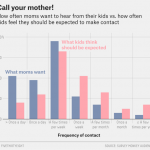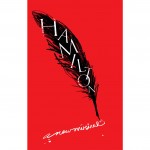
I haven’t read Hitchens’s god is Not Great (though I did beat everyone else in DC to the library to grab Hitch-22 yesterday). Possibly because of my age, I didn’t learn about Hitchens in the context of atheism, I knew him as one of the people on the wrong side of the Iraq war debate. Hitchens was a brilliant writer, but his didn’t always marshall them for good cause.
I didn’t have any particularly strong feelings about Hitchens until I heard about his decision to be waterboarded and his subsequent conviction that it truly was torture. You can read his write-up of the experience here: “Believe Me, It’s Torture,” and I’ve posted the video in the next section.
I’ve always been tremendously fond of E.L. Konigsburg’s About the B’nai Bagels, especially the advice the protagonist receives from his older brother when he’s preparing to sing a Torah portion for his Bar Mitzvah.
“I have only one word of advice to give you”
“Give already”
“That word is fortissimo… it’s Italian for loud. When in doubt, shout, that’s what I’m telling you.”
“I should shout? Everyone will hear for sure how bad I am.”
“But, my dear brother, if you sing loud and clear, it will be easier on the audience. You’re making it doubly hard on them. Hard to listen to and hard to hear.”
I have an unfortunate tendency to go flat on sustained notes when singing (especially if they come at the end of a descending sequence). And when I was in my high school chorus, I remembered E.L. Konigsburg’s advice and kept the volume up. I got more corrections and help after class than anyone else in the alto section, and when the concert came around, I was adequate! The girls who started flat and sung quietly never got better at all.
Especially when it comes to ethics and metaphysics (where the stakes are a little higher than our Les Mis medley), I try to be loud enough to get corrected if I’m wrong. That’s why I really like the way Hitchens handled the promotion of god is Not Great. Instead of going on a conventional book tour, Hitchens scheduled debates with religious leaders across the country. Judging by the eulogies they offered, they took the sparring in good faith.
That’s not to say that all of Hitchens’s pugilism was admirable. I agree with Katha Pollitt that, if people are actually writing eulogies wistfully remembering the time Hitchens literally spit a cigarette at them, they’ve gone completely round the twist. Anger can be productive, but there’s no reason to lionize spleen any more than we should imitate his drinking.
In my opinion, the hands down best writing Hitchens did was his Tropic of Cancer series for Vanity Fair after his diagnosis. Here are my three favorite pieces: one kicking off the series, one about the horror of losing his voice, and one about the difficult choice to treat his cancer when the radiation is agonizing and the chances of improvement are slim.
As we get better at treating everything else, more people are going to face similar trials, and I am grateful Hitchens wrote these essays, which offer powerful support to patients and their families. Most people face this struggle in ignorance and need to cobble together plans in a moment of crisis. Hitchens’s essays should probably be paired with “How Doctors Die” an essay that outlines the decisions doctors make about their own end of life care, and how profoundly divergent their choices are from those of their patients.
I’d like to end on a less bleak note, so I’ll just link to this parody Hitchens eulogy, penned by Neal Pollack. Here’s an excerpt:
University, as you know, is the only time in one’s life when anything really worthwhile happens. I met Hitch there. The first time I saw him, he had a bird on each arm and a woman by his side. She beamed as he read aloud passages from “Homage to Catalonia.” He looked up.
“Who the hell are you?” he said.
“I’m your housemate,” I said.
“Are you in favor of the war in Vietnam?”
“Of course not.”
Hitch put down the book and took a swig of cheap Scotch.
“Good,” he said. “Because I refuse to fraternize with men who are afraid to be intellectual heroes.”
For more Quick Takes, visit Conversion Diary!












